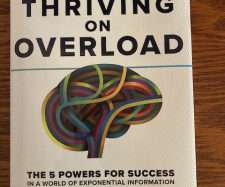My Personal Knowledge Management Approach
Clark Quinn
MARCH 29, 2022
So with no further ado, here’s my personal knowledge management approach. First, Harold’s Personal Knowledge Management ( PKM ) model has three components: seek, sense, and share. Seeking is about information coming in, that is, what you’re looking for and the feeds you track.






























Let's personalize your content